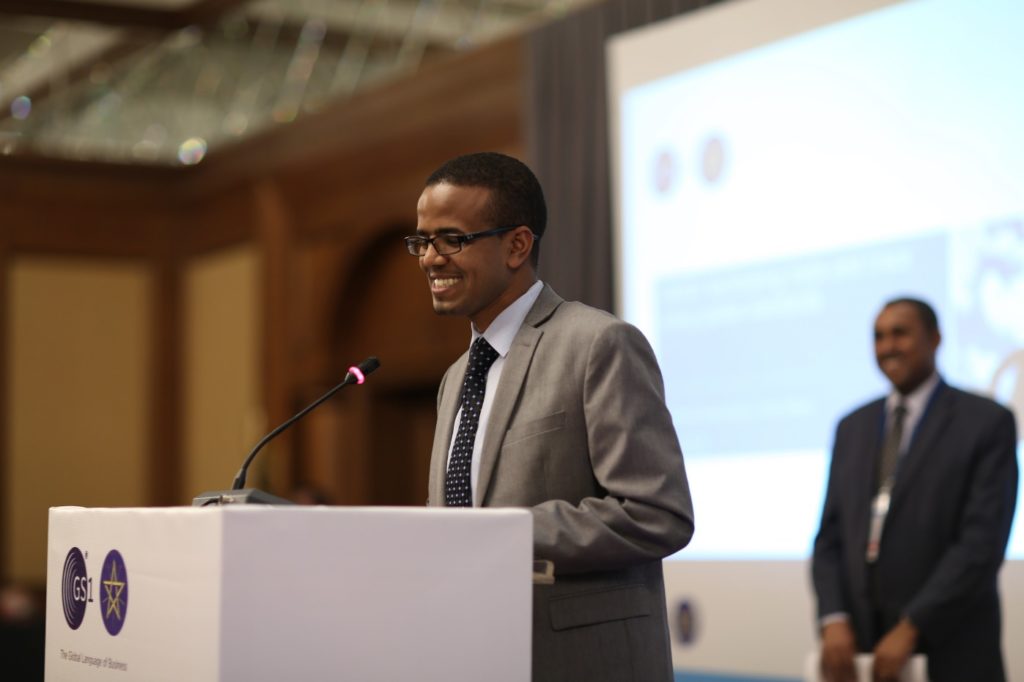The Falsified Drug Market: One of the Largest Illegal Trades in the World
July 23rd, 2018 | viewpoint
What would you do as a patient if you weren’t sure if the medicine you’re receiving is genuine? What would you do as a healthcare provider if you couldn’t find high-quality medicines to treat your patients?
The World Health Organisation estimates that 10 percent of medication distributed in low- and middle-income countries is substandard or falsified. These medicines jeopardize patient safety, lead to loss of lives, impact the economy, and result in diminished trust in healthcare systems. Africa is especially vulnerable to counterfeit medicines. About 100,000 deaths a year across the continent can be linked to the counterfeit drug trade.
How then can we make sure that healthcare providers and patients have access to high-quality medication? Healthcare regulators around the world, including those present at the GS1 Healthcare Conference held in Addis Ababa in May, are grappling with this issue.
GS1 is a not-for-profit organization that develops and maintains global standards for business communication. The best known of these standards is the barcode, a symbol printed on products that can be scanned electronically. GS1 standards are designed to improve the efficiency, safety, and visibility of supply chains across various business sectors including in the pharmaceutical sector. They include language around products, locations, assets and more.
GS1 chose Ethiopia for its very first healthcare conference in sub-Saharan Africa because the country has been a pioneer of GSI introduction on the continent. With support from JSI, Ethiopia’s Food Medicine and Healthcare Administration Authority (FMHACA) has developed a strategy for GS1 introduction into the pharmaceutical sector.
JSI has also been working with the Pharmaceutical Fund and Supply Agency (PFSA)—the public sector healthcare supply chain agency in Ethiopia—to introduce GS1 into their business processes including piloting barcode track and trace, introducing barcode identifiers for key PFSA documents, and a mobile app for verification of malaria medicines with GS1 barcodes.
“GS1 standards and barcodes are tools that can help supply chain partners to ensure that patients receive effective and safe medicine,” said Ulrike Kreysa, Vice-President Healthcare at GS1 Global Office who welcomed participants to the conference. The Ethiopian Minister of Health, Dr. Amir Aman officially opened the conference by stressing the importance of aligning the global community behind harmonized traceability systems in order to build trust and improve patient safety and supply chain efficiency. He encouraged all participants to develop a consensus on and a common understanding of the challenges we all face in stopping the circulation of counterfeit medicines and come up with a global approach to tackle the issue.

Discussion between governmental bodies alone, however, isn’t sufficient. During the three-day conference, many supply chain stakeholders were present, including pharmaceutical manufacturers, wholesalers, importers, standards agencies, solution providers, donor organizations and healthcare providers from the public and private sectors. The participants listened to world leaders showcase GS1 standards implementations from their organizations; learned from experts with implementation experience; discussed the latest regulatory and trading partner requirements; enjoyed a unique neutral environment to network; and most importantly, became a part of the discussion around using track and trace technology to combat fake drugs.
Mr. Yehulu Denekew, Director General of EFHAMCA concluded with a rallying cry for GS1 and standards implementation: “Join us and let us make this initiative a reality in this country and other African countries.”
Written by Elisa Zwaneveld
We strive to build lasting relationships to produce better health outcomes for all.